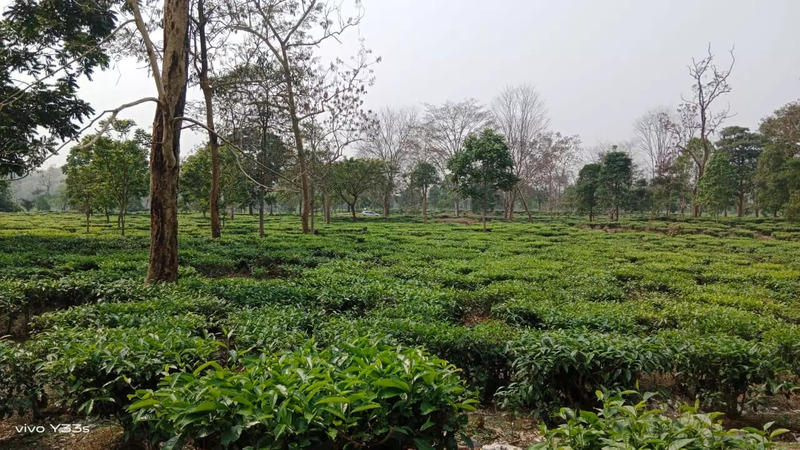 Assam
Assam
'Smart Tea Villages' empowers Assam's 200 year old tea industry
The 200-year-old tea industry of Assam's small tea growers have long faced challenges of getting remunerative prices, scarce access to resources and markets but an initiative to create 'Smart Tea villages' brought leading changes empowerment through sustainable practices.
To complement the Tea Board's initiatives for small tea growers, a programme titled 'Trinitea' was launched.
It aims to enhance the competitiveness of the farmers by hand-holding them to move up the value chain, said Shatadru Chattopadhayay, managing director of Solidaridad Network, stated Assam Tribune.
The state has about 1.22 lakh registered small tea growers who account for 52 percent of the total supply of tea leaves in the state but faced numerous challenges and "we have tried to address these issues by creating smart tea villages'', Chattopadhayay told PTI.
''The primary aim of the initiative is to promote good agricultural, social and environmental practices which will help in improving the quality of green leaf and thereby help them to get better remunerative prices'', he said.
Six approaches have been adopted in the process of creating smart tea villages and these include weather, water, carbon, knowledge, energy and market smart, he said.
The first approach towards being weather smart includes the use of specific mobile apps created for the purpose of information on the state of local weather throughout the year and not become its victim while water smart includes better irrigation facilities and saving of water for more crops, he said.
The programme focuses on 'carbon smart' by restoring degraded soil, using less water, reducing the use of fertilizers and improving productivity.
"Carbon smart helps the soil to be more resilient to climate change impact as healthier soil helps to effectively withstand drought and heavy rainfall," he said.
The small tea farmers also lack access to the latest information related to agricultural practices, and this project aims to take the best of knowledge of tea experts to them through phones as well as regular training organized by the Assam Agricultural University's (AAU) out-reach programmes in respective villages, Chattopadhayay said.
The initiative is also motivating farmers to work together and strengthen their associations so that they have better collective bargaining power in the market.
As the average holdings of the growers are minuscule and scattered, "so we have identified them, mapped their holdings, their location, the amount of leaf produced and the supply points. All these have been digitally mapped and are available on our dashboards," he said.
The tea factories often complained of poor quality leaves and so we are encouraging the growers to form self-help groups and adopt the various approaches of better agricultural practices, Boriah added.
"The Tea Board has also come up with several schemes to support the growers organized in SHGs and this has added weight and complemented our programmers," he said.
Besides, it is also providing the growers with traceability systems, ensuring transparency and accountability in the supply chain, enabling them to track their teas from the plantation to the consumer and ensuring that the teas are ethically produced, sustainable, and of the highest quality, he added.
Support Our Journalism
We cannot do without you.. your contribution supports unbiased journalism
IBNS is not driven by any ism- not wokeism, not racism, not skewed secularism, not hyper right-wing or left liberal ideals, nor by any hardline religious beliefs or hyper nationalism. We want to serve you good old objective news, as they are. We do not judge or preach. We let people decide for themselves. We only try to present factual and well-sourced news.







